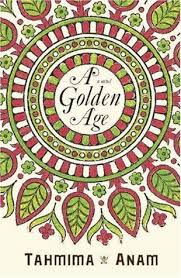I am cross-posting my review of Tahmima Anam’s novel “A Golden Age” from my personal blog. This review was originally published on The South Asian Idea in 2010.
She spoke, with fluency, the Urdu of the enemy. She was unable to pretend, as she saw so many others doing, that she could replace her mixed tongue with a pure Bengali one, so that the Muslim salutation, As-Salaam Alaikum, was replaced by the neutral Adaab, or even Nomoshkar, the Hindu greeting. Rehana’s tongue was too confused for these changes. She could not give up her love of Urdu, its lyrical lilts, its double meanings, its furrowed beat.
—Tahmima Anam, A Golden Age, pg. 47
Literature often yields insights into political events in ways that traditional historical accounts cannot. History tells us of war, rebellion, the process of state formation, but the medium’s strength does not lie in describing the complex human emotions that lie behind such events.
As a Pakistani-American, reading Tahmima Anam’s A Golden Age, a novel set during the 1971 war between East and West Pakistan that resulted in the creation of Bangladesh, was an enlightening and somewhat disturbing experience. 1971 is rarely discussed in Pakistan, and when it is, it is always in the context of the “dismemberment” of the country and the treacherous role played by India in this process. For decades, Pakistani history textbooks referred to Bengalis as traitors and the “enemy within” (a point discussed by the eminent Pakistani social scientist Rubina Saigol). We never discuss the reasons why the Eastern wing of the country wanted to declare independence. Neither do we critically assess our own role in this second Partition of the subcontinent.
Obviously, the historical narrative is very different in Bangladesh. There, 1971 is celebrated as a war of independence, leading up to the formation of a new state. It is a victory against occupation and oppression, similar to the American Revolution or indeed of India’s winning of independence from the British. In this version of the narrative, Pakistanis are seen as the villains and the Bengali freedom fighters as heroes.
While this is the basic narrative backdrop of A Golden Age, what makes the book worth reading is Anam’s complex psychological characterization, particularly of her protagonist Rehana Haque, a middle-aged widow and mother of two teenage children. Rehana is from Calcutta and is Urdu-speaking, having moved to Dhaka after her marriage. She is a reluctant revolutionary, being drawn into the battle for Bangladeshi independence mostly against her will, through her two college-going children. It is through Rehana’s character and her ambiguous and divided feelings about the events around her that Anam expresses the complex personal ramifications of political events.
Language is a particularly powerful marker of identity and during times of conflict the language one speaks often takes on huge significance. Today sixty years after the Partition of India and the creation of Pakistan, there is still conflict over whether Hindi and Urdu are two registers of the same language or two completely distinct tongues. In Pakistan, Urdu has become increasingly “Arabized” and “Persianized” while Hindi in India has became “Sanskritized”. Similarly during 1971, an individual’s decision to use Urdu or Bengali became a marker of his or her political position. Urdu, Pakistan’s official language, was seen as the language of the occupier, while Bengali became a symbol for the distinct identity of “East Pakistanis” and their fight for their own state. But what of people like Rehana, those who were Urdu-speaking Bengalis? In order to show loyalty to the national cause, they were expected to give up their language.
What effect does this dilemma have on the individual? Anam depicts Rehana as a lover of Urdu poetry, especially of the Ghazal. Even her son, Sohail, who is politically very engaged with the Bengali cause, writes love letters to his girlfriend in which he extensively quotes Urdu poets. When he leaves to join the resistance, one of the only books he takes with him is the Ghazals of Mirza Ghalib. Clearly then, even someone so politically committed to a free Bangladesh could not abandon his love of Urdu, the language of the “enemy.”
A Golden Age is a powerful story of a nation’s violent birth. More importantly, it is the story of the harrowing choices individuals are forced to make in times of conflict. Which comes first, one’s ethnicity, language, or nationality? Reading this book has caused me to continue to ponder the fascinating questions of identity, both national and personal.
